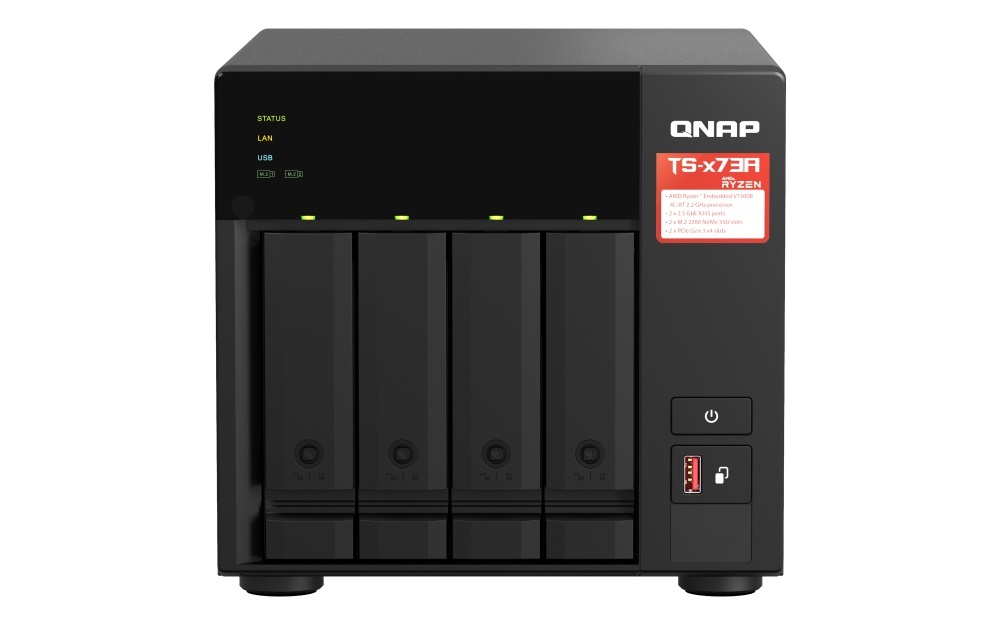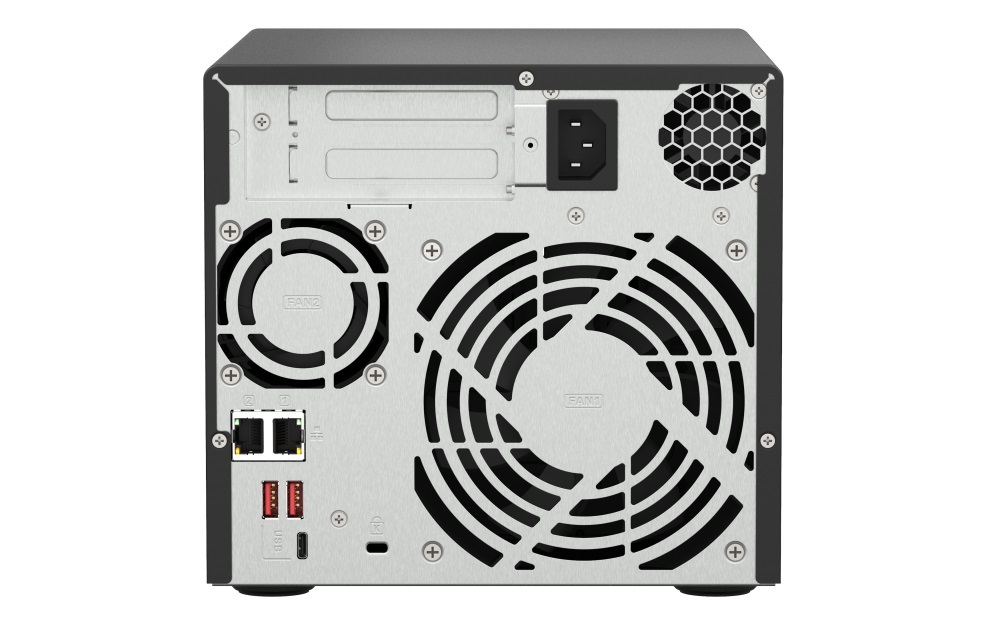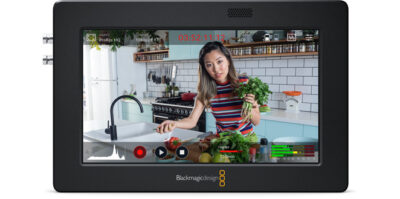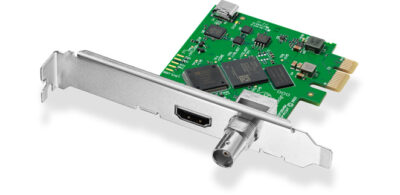Description
BUNDLE QNAP 4 Bay NAS + 32TB Storage (4x8TB) – TS-473A-8G
AMD Ryzen™ quad-core 2.2 GHz 2.5GbE NAS supports M.2 NVMe SSD and PCIe expansion for adding 10GbE high-speed connectivity and M.2 SSD; QTS and QuTS hero dual operating system for greater flexibility
2.5GbE connectivity
Both 2.5GbE ports are backwards compatible with 1GbE/ 100MbE speeds. Up to 5 Gbps transfer speeds can be achieved by using port trunking.
Flexible PCIe expansion
Add extra functionality with PCIe cards, including 10GbE ports, SSD caching, extra USB 3.2 Gen 2 ports, wireless networking, or Fibre Channel.
GPU applications
Supports entry-level NVIDIA® graphics cards for video processing or GPU-passthrough to VMs.
SSD cache acceleration
Features two M.2 PCIe NVMe SSD slots for Qtier Technology and SSD Caching enable constant storage optimization.
Virtualization applications
Host containerized applications and virtual machines with various operating systems.
Supports QTS/QuTS hero OS
Features QTS operating system and supports switching to ZFS-based QuTS hero for greater reliability.
Hardware Specifications:
TS-473A-8G
CPU AMD Ryzen™ Embedded V1500B 4-core/8-thread 2.2 GHz processor
CPU Architecture 64-bit x86
Graphic Processors Optional via a PCIe adapter
Floating Point Unit
Encryption Engine (AES-NI)
Hardware-accelerated Transcoding Optional via a PCIe adapter
System Memory 8 GB SODIMM DDR4 (1 x 8 GB)
Maximum Memory 64 GB (2 x 32 GB)
Memory Slot 2 x SODIMM DDR4
Support ECC memory
For dual-DIMM configurations, you must use a pair of identical DDR4 modules.
Flash Memory 5GB (Dual boot OS protection)
Drive Bay 4 x 3.5-inch SATA 6Gb/s, 3Gb/s
Drive Compatibility 3.5-inch SATA hard disk drives
2.5-inch SATA solid state drives
Hot-swappable
The following are not hot-swappable: M.2 SSDs, SSD cache drives, SSDs using PCIe expansion slots.
M.2 Slot 2 x M.2 2280 PCIe Gen3 x1 slots
The M.2 SSD is not included as standard.
M.2 SSD operations can easily generate excessive heat. It is recommended to install a heatsink (from QNAP or a third-party provider) on the M.2 SSD.
SSD Cache Acceleration Support
GPU pass-through
2.5 Gigabit Ethernet Port (2.5G/1G/100M) 2(2.5G/1G/100M)
5 Gigabit Ethernet Port (5G/2.5G/1G/100M) Optional via a PCIe adapter
10 Gigabit Ethernet Port Optional via a PCIe adapter
Wake on LAN (WOL)
Jumbo Frame
PCIe Slot 2
Slot 1: PCIe Gen 3 x4
Slot 2: PCIe Gen 3 x4
Card dimensions for PCIe slot 1~Slot 2:200 x 68.9 x 18.76 mm / 7.87 x 2.71 x 0.74 inches.
Wider cards can be installed if the next PCIe slot will not be used.
USB 3.2 Gen 2 (10Gbps) Port 3 x Type-A USB 3.2 Gen 2 5V/1A 10Gbps
1 x Type-C USB 3.2 Gen 1 5V/1A 5Gbps
HDMI Output Optional via a PCIe adapter
Form Factor Tower
LED Indicators Status/Power, USB, LAN, Drive 1-4, M.2 SSD 1-2
Buttons Power, Reset, USB Auto Copy
Dimensions (HxWxD) 188.2 × 199.3 × 280.8 mm
Weight (Net) 5.03 kg
Weight (Gross) 6.04 kg
Operating Temperature 0 - 40 °C (32°F - 104°F)
Storage Temperature -20 - 70°C (-4°F - 158°F)
Relative Humidity 5-95% RH non-condensing, wet bulb: 27˚C (80.6˚F)
Power Supply Unit 250W, 100-240V AC, 50-60Hz, 3.5A
Power Consumption: HDD Sleep Mode 19.576 W
Power Consumption: Operating Mode, Typical 29.792 W
Tested with drives fully populated.
Fan System fan: 1 x 120mm
CPU fan: 1 x 60mm
System Warning Buzzer
Max. Number of Concurrent Connections (CIFS) - with Max. Memory 2000
Note: Use only QNAP memory modules to maintain system performance and stability. For NAS devices with more than one memory slot, use QNAP modules with identical specifications.
Warning: Using unsupported modules may degrade performance, cause errors, or prevent the operating system from starting.
The terms HDMI, HDMI High-Definition Multimedia Interface, HDMI trade dress and the HDMI Logos are trademarks or registered trademarks of HDMI Licensing Administrator, Inc.
Product images are for illustrative purposes only and may differ from the actual product. Due to differences in monitors, colors of products may also appear different to those shown on the site.
Designs and specifications are subject to change without notice.
Operating System
QTS 5.0.1
Supported Client Operating Systems
Apple Mac OS 10.10 or later
Ubuntu 14.04, CentOS 7, RHEL 6.6, SUSE 12 or later Linux
IBM AIX 7, Solaris 10 or later UNIX
Microsoft Windows 7, 8, 10 and 11
Show more...
Supported Browsers
Apple Safari (latest version)
Google Chrome (latest version)
Microsoft Edge (latest version)
Mozilla Firefox (latest version)
Supported Languages
Chinese (Traditional & Simplified), Czech, Danish, Dutch, English, Finnish, French, German, Greek, Hungarian, Italian, Japanese, Korean, Norwegian, Polish, Portuguese (Brazil), Romanian, Russian, Spanish, Swedish, Thai, and Turkish
Storage Pool
SED Storage Pool
Maximum Pool size
308 TB
Maximum number of storage pool
128
Volume Type
Thick, Thin, Static
Maximum volume size
250 TB
Note: At least 4 GB RAM is required.
Maximum number of volume
128
Maximum shared folder size
250 TB
Maximum number of shared folder
512
JBOD Expansion
VJBOD / VJBOD Cloud
iSCSI Service
Fibre Channel Service
LUN Type
Thick, Thin
File-based iSCSI LUN
Block-based iSCSI LUN
Maximum LUN size
250 TB
Note: At least 4 GB RAM is required.
Maximum number of targets LUN
128
LUN feature
LUN Mapping (LUN can be moved between iSCSI and FC)
LUN Masking
WWPN Aliases Import/Export
FC Port Group
Show more...
Auto Tiering
Requires minimum 2GB memory.
RAID Type
8-bay (and more): JBOD, Single, RAID 0, 1, 5, 6, 10, 50, 60
6-bay: JBOD, Single, RAID 0, 1, 5, 6, 10, 50
4-bay: JBOD, Single, RAID 0, 1, 5, 6, 10
2-bay: JBOD, Single, RAID 0, 1
RAID Group
To ensure data security, system stability, and storage performance, the maximum number of drives for a single RAID group is now 16 (applicable to RAID 5, RAID 6, RAID TP, and subgroups of RAID 50 and RAID 60). Nevertheless, users can combine multiple RAID groups into a large storage pool that contains more than 16 drives, using RAID 50, RAID 60, or RAID 10 as the RAID configuration. This enhancement will only be applied to new RAID groups. All existing RAID groups and storage systems will not be affected.
RAID Level Migration
RAID Expansion (by adding Disk)
RAID Expansion (by replacing bigger Disks)
Storage Pool Expansion (by adding RAID Group)
RAID Hot Spare
Global, Local
RAID Sync/Rebuild/Scrubbing
Internal drive
EXT4
External drive
EXT3, EXT4, NTFS, FAT32, HFS+, and exFAT (optional for ARM model)
Note: To use exFat in certain models you must purchase an exFAT driver license from License Center.
Disk, Enclosure Locate
Disk S.M.A.R.T. Scan
Disk S.M.A.R.T. Data Migration
Ironwolf Health Management
Secure Erase
SSD Trim
SSD Life Estimation
Disk Roaming
Disk Standby
Volume Snapshot
LUN Snapshot
Maximum Snapshot (Per System)
Check maximum number of snapshots of your NAS
Maximum Snapshot (Per Volume / LUN)
Check maximum number of snapshots of your NAS
Minimum Snapshot Interval
5 minutes
Snapshot Retention Policy
Self-serve Snapshot Recovery
Application Consisted Snapshot
Snapshot Full Clone
Snapshot Replica / Vault
SSD read-only Cache
SSD read-write cache
SSD write-only cache
SSD Cache Maximum Size
Check your QNAP NAS cache capacity and RAM requirements
SSD Cache RAID
0, 1, 5, 6, 10
SSD profiling tool
External Device Management
Mount Smart Phone (MTP)
External RAID Device (QNAP so on) Management (External Device Mode)
External RAID Device (QNAP so on) Management (NAS Mode)
File Server
File sharing across Windows, Mac, and Linux/UNIX
Microsoft networking (CIFS/SMB)
Apple networking (AFP)
NFS version 3/4 services
FTP Server
QuFTP
FTP, SFTP and TFTP protocols
FTP over SSL/TLS (explicit FTPS)
FXP support
Maximum FTP connection
1024
File Station (Web)
Object Storage
Local user account
4,096
Local group account
512
Domain user/group account
200,000
Domain Security
Domain Controller
Shared folder permission
Advanced folder permission
, (AFP, CIFS/SMB, FTP, and File Station)
Windows ACL
, (CIFS/SMB)
User quota
Group quota
Folder quota
, (Snapshot shared folder)
Home folder
Resource Monitor
SNMP
V2, V3
Network recycle bin
Recover files deleted using AFP, CIFS/SMB, and File Station
Automatic cleanup and file type filter
System Log & Notification Center
Log recording: 3,000 event per second
Smart Fan
Schedule on/off
Internet protocol
IPv4, IPv6
Virtual Switch
Port trunking
, (7 modes)
VLAN
DHCP Server
DDNS (Dynamic Domain Name Service)
Network access protection with auto-blocking
SSH, Telnet, HTTP(S), FTP, CIFS/SMB, and AFP
Security Counselor
Malware Remover
AES 256-bit Volume Encryption validated by FIPS 140-2 CAVP
2-step verification
Allow/Deny List
Access Protection
Service binding
Firewall
Windows Server certifcated
vSphere Web Client Plug-in
VMware vSphere VAAI for iSCSI
VMware vSphere VAAI for NAS
Windows ODX
Windows/VMware Snapshot Agent
HTTP/HTTPS Connections
TLS 1.0/1.1/1.2/1.3
Supports WebDAV Connection
Supports Virtual Hosts
32
Qsync
Note: At least 1 GB RAM is required.
[Qsync] Management Mode
User customization, Central
[Qsync] Qsync client supported platforms
Windows, macOS, Ubuntu, Android, and iOS
[Qsync] Maximum number of version control
64
HybridMount
Note: At least 1 GB RAM is required.
[HybridMount] File Cloud Gateway
Concurrent Connections = 20 Upload & 20 Download
[HybridMount] Network Drive Mount
[HybridMount] Free cloud gateway sessions
2
HBS (Hybrid Backup Sync)
Note: At least 1 GB RAM is required.
[HBS (Hybrid Backup Sync)] NAS to NAS backup
[HBS (Hybrid Backup Sync)] Cloud Backup
[HBS (Hybrid Backup Sync)] Cloud Sync
[HBS (Hybrid Backup Sync)] 2-way and Active Sync
[HBS (Hybrid Backup Sync)] Backup Deduplication
[HBS (Hybrid Backup Sync)] Apple Time Machine Backup
[HBS (Hybrid Backup Sync)] External drive backup
[HBS (Hybrid Backup Sync)] Maximum number of backup job
400
Hyper Data Protector
Boxafe
Note: At least 4 GB RAM is required.
[Boxafe] Office 365 Backup
[Boxafe] Google Workspace Backup
[Boxafe] Full-text search
Qsirch
Note: This feature is supported by all QNAP NAS devices with at least 2 GB of memory
[Qsirch] Previews
Photos, music, videos, PDFs, Gmail, and others
[Qsirch] Integrate Mac Finder
[Qsirch] Advanced picture search
[Qsirch] Search filters
QuMagie
Note: At least 1 GB RAM is required.
[QuMagie] Browse photos
[QuMagie] Virtual and smart albums
[QuMagie] AI-assisted photo management
People, things, places, and others
Antivirus (free)
McAfee (License)
QVPN Service
Note: At least 1 GB RAM is required.
[QVPN Service] Remote Access
PPTP, L2TP/IPSec, OpenVPN, WireGuard, QBelt (QNAP proprietary)
[QVPN Service] Supportedd utility and mobile app
Windows, macOS, iOS, and Android
[QVPN Service] Supported maximum clients
100
LDAP Server
RADIUS
SQL server
License Center
Multimedia Console
Photo Station
Music Station
Video Station
Download Station
Notes Station
Qfiling
Media Streaming add-on
QmailAgent
QuWAN
DA Driver Analyzer
Q'center
Note: The application is available in the App Center and in virtual appliance marketplaces (VMware vSphere ESXi and Microsoft Hyper-V).
Q'center Server
Q'center Agent
Connect to Q'center
Virtualization Station
Note: At least 4 GB RAM is required.
[Virtualization Station] Supports Virtual machine instances
Windows, Linux, Unix, and Android
[Virtualization Station] VM importing, exporting, cloning, snapshot capturing, backup, and restoration
All function is Fine.
[Virtualization Station] Virtual switches
Can create a virtual switch
[Virtualization Station] GPU pass-through
Not support GPU
[Virtualization Station] Suggested number of virtual machine instances
8
The actual number of virtual machine instances may vary by the memory installed on NAS (e.g. 1 VM= 1 thread for 1 vCPU and 1GB memory). Please expend memory if needed.
Container Station
Note: At least 1 GB RAM is required.
[Container Station] Supported type
LXC/LXD and Docker
Note: LXD has been supported after Container Station 2.4
[Container Station] Docker Hub Registry
[Container Station] Container importing and exporting
[Container Station] Console mode
Linux Station
Notification: At least 4 GB RAM is required.
[Linux Station] Supports Ubuntu versions
18.04, and 20.04
Linux Station Center
QVR Pro
Note: At least 4 GB RAM is required. The maximum number of channels supported varies by NAS model, network configuration, and camera settings. For more information, visit https://www.qnap.com/go/qvr-nas-selector.
[QVR Pro] Recording Technique
Index database based
[QVR Pro] License Type
Perpetual
[QVR Pro] User-defined trigger events
[QVR Pro] Metadata
[QVR Pro] QVR Pro Client (Desktop)
Windows, macOS, and QNAP HybridDesk Station
[QVR Pro] QVR Pro Client (Mobile)
Android and iOS
[QVR Pro] Recording camera streams
H.264
[QVR Pro] Free built-in camera channels
8
QVR Elite
Note: At least 1 GB RAM is required. The maximum number of channels supported varies by NAS model, network configuration, and camera settings. For more information, visit https://www.qnap.com/go/qvr-nas-selector.
[QVR Elite] Recording Technique
Standard MP4 file based
[QVR Elite] License Type
Subscription-based
[QVR Elite] User-defined trigger events
[QVR Elite] QVR Pro Client (Desktop)
Windows, macOS, and QNAP HybridDesk Station
[QVR Elite] QVR Pro Client (Mobile)
Android and iOS
[QVR Elite] Recording camera streams
H.264
[QVR Elite] Free built-in camera channels
2
QVR Pro Client
[QVR Pro Client] Dynamic View Layout
[QVR Pro Client] Windows
[QVR Pro Client] Mac
[QVR Pro Client] HybridDesktop
[QVR Pro Client] iOS
[QVR Pro Client] Android
QVR Center
Note: At least 4 GB RAM is required.
[QVR Center] Log management
[QVR Center] Central monitoring across multiple servers
QVR Guard
Note: At least 4 GB RAM is required.
[QVR Guard] Failover design
[QVR Guard] Viewing task details
[QVR Guard] Automatic switch between Standby and Takeover modes
QVR Human
QVR Face
The maximum number of channels supported varies by NAS model, network configuration, and camera settings. For more information, visit https://www.qnap.com/solution/qvr-face/en-us/
QVR DoorAccess
Note:
QTS does not support DRM content and some IPv6 services.
Some data encryption features may be unavailable because of country-specific legislative restrictions.
Some features may vary by model.
Designs and specifications are subject to change without notice.






